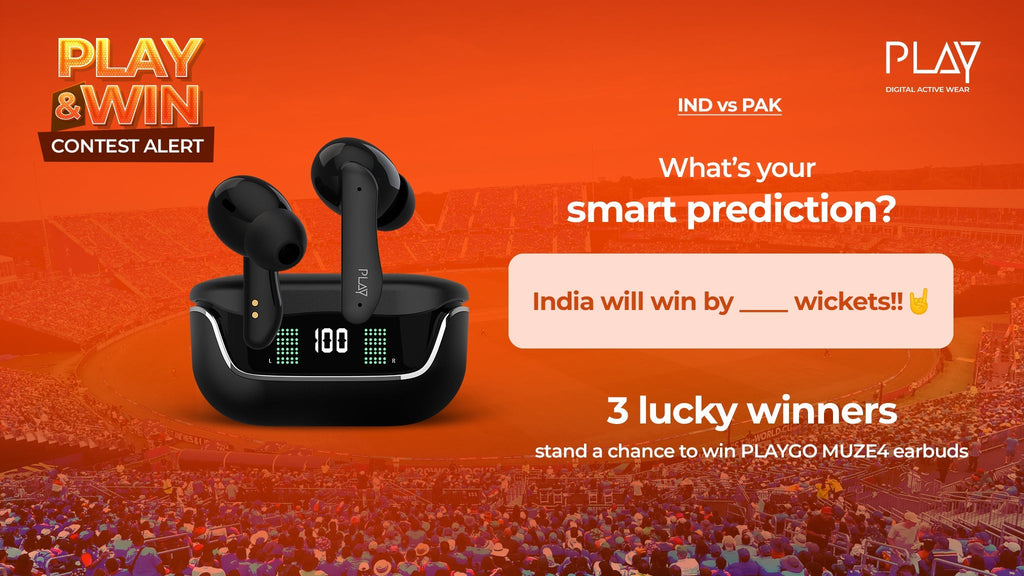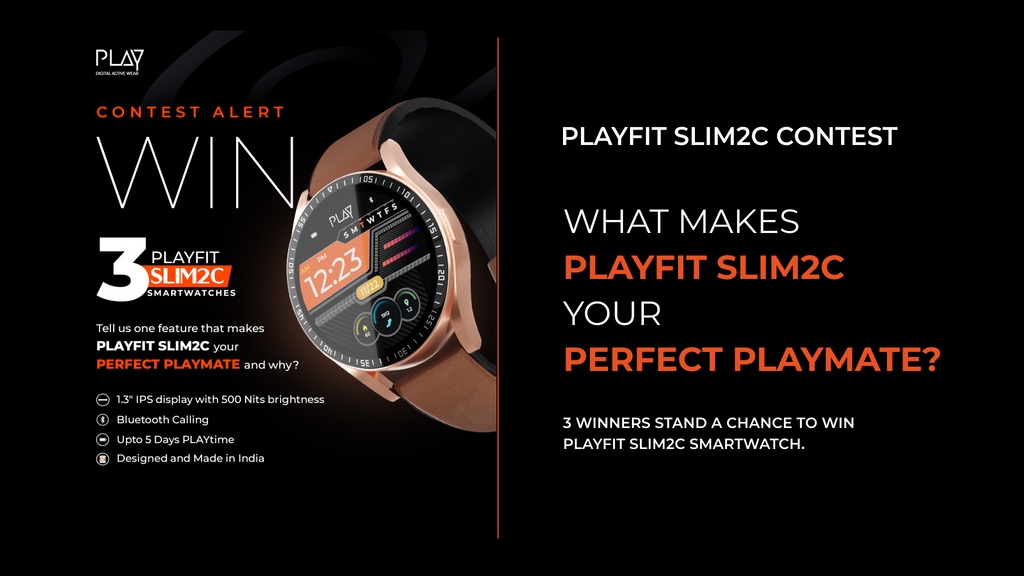

Headphone Buying Guide
If you're looking for a new pair of headphones, the sheer number of options in terms of type, brand, and price can be overwhelming. Furthermore, there are a number of things to consider when selecting your headphones that you may not be aware of. Headphones come in various styles however they can be categorised on the basis of the following types of fit:
Over-ear :
Over-ear headphones generally have thick headbands and huge ear cups that completely cover your ears, without compromising on the comfort factor.
Who should buy over-ear headphones?
Listeners who prefer an easy and comfortable fit and wouldn’t mind a large headphone.
Portability
Although some over-ear headphones can be folded and even come with a travel case, this is not their strong point. Of all the types of headsets that are under the radar today, over-ear headphones are the largest and least portable.
Comfort
Wearing comfortable over-ear headphones is like covering yourself with a warm blanket. The headphones completely cover your ears, so you don’t have to worry about your ears getting sore. However, they are heavy. Therefore, be sure to find a pair of padded headbands with comfortable ear cushions, which doesn't make you sweat.
On-ear :
On-ear headphones are way more compact in comparison to over-ear ones. They have smaller ear cups that rest on the ears and also slightly less in bass.
Who should buy on-ear headphones?
Listeners who prefer a moderately comfortable fit and a slightly more compact design.
Portability
Most on-ear headphones are designed for the frequent travelers. Many even fold up for easy transport. Most of the headsets come with a hard-case to prevent damage when tossed around casually.
Comfort
It’s a matter of preference. On-ear headphones don’t usually get as comfortable as over-ears can, and they don’t sit inside your ear canal, which could be annoying for some people. On the other for people who are sensitive, on-ear headphones can sometimes lead to soreness from the constant contact with your ears. Hence this is great alternative in such cases.
In-ear :
In-ear headphones are super portable with small earbud tips, which fit into the ear canal.
Who should buy in-ear headphones?
People who want to go for a portable design and are comfortable with the in-ear fit.
Portability
Due to their small size, in-ear headphones are highly rated when it comes to the portability factor. A few may come with a travel case, but for most, it’s as easy as wrapping the cord around their fingers and tossing them in their bag or pocket.
Comfort
In-ear headphones mostly fit perfectly inside the opening of your ear canal, sealing it smoothly. Others are held on with small pieces that wrap around the back of your ears.To some, in-ear headphones are extremely comfortable, while to others they can be annoying and sometimes even painful. In-ear headphones that use memory foam or comply ear-tips, rather than hard plastic or silicon are safer. In-ear headphones are your best bet, especially if you’re someone who listens to music while jogging or working out,
Wireless Headphones
Wireless headphones work by connecting, or pairing with the device using bluetooth. You can connect to different devices seamlessly without having to go through the messy and tangled wires.
Pros:
- Convenience
- Easy Access
- Quick Pairing
- Tangle free
Cons:
- Loss in Battery charge.
- Sound Quality maybe affected
True Wireless
The first thing to know is that: "wireless" headphones and "true wireless" headphones are actually different. A crucial difference is that there are no cables or connector between the earpieces in "true wireless" headsets. "Wireless" headphones are still connected in some way (over-head like BH47 of PLAYGO or on the neck in many sportswear), but you wouldn't be needing a phone jack.
Are True Wireless Headphones workout-friendly?
The main factor why people choose to go for a true wireless headphone is to eliminate the trouble of adjusting the wires and being fixated and restricted to a device while working out. The majority of true wireless headphones are suitable for exercise and are water- and sweat-resistant to a certain degree. Which means you can, listen to music, and enjoy having the freedom to roam or move around the gym unrestricted, without limited movements due to the chord
Noise Cancellation headphones
Noise-canceling headphones, also known as active noise-canceling headphones, use electronic processing to analyze environmental noise and produce "opposite" sounds.
The result is usually less overall noise.
1. It reduces the volume level for your audio.
2. It can help you to study and concentrate.
3. It works to protect your hearing.
4. Ideal for people who travel frequently
How do Noise Cancellation headphones work?
Active noise reduction headphones can do all the things that passive ones can do: their structure creates a barrier to block high-frequency sound waves, and adds an extra layer of noise reduction by actively eliminating low-frequency sound waves. How do noise-canceling headphones achieve this? By creating their own sound waves, which mimic the incoming noise in various ways to cancel them out.
Wireless vs. Wired Headphones: Which Is for You?
Audio Quality
- Wireless headsets provide convenient wire-free experience. However, depending on the environment and the distance from the smart device, interference may occur.
- Wired headphones minimize the risk of interference that otherwise could affect sound quality. In addition, wired headphones with high-definition audio quality are available too.
Battery Life
- Wireless headphones mostly use a rechargeable battery that require a mini or micro USB cable and take about 3 hours to recharge.
- Many wired headphones do not require a power supply. Which means you can easily plug them into your device and use them at any place, any time.
- The battery life of wired and wireless headphones varies. For wired noise-canceling headphones, the battery life usually ranges from 20 hours to 30 hours. For Bluetooth headphones, battery life could range from 8 hours to 12 hours, but for example premium bluetooth headphones of brands like PLAYGO offers up to around 30 hours of battery life, and 23hrs with ANC, which is way more than most of the brands.
Portability
- If you want to listen to music while running, wireless headphones are your best bet. These headphones won't not weigh you down, when jogging. In addition, the wireless earbuds remain on your ears at all times of your workout.
- The chord connected to the headset can sometimes cause problems. You must wrap the cable every time you put it in your pocket, otherwise you’d have to deal with a tangled headset. Wired ones can also interfere with jogging, workout, or other vigorous activities. For athletes and other active individuals, wireless headphones are a better choice than wired models.
Compatibility
- If you're going to use wired or wireless headphones with your smartphone, double-check that they're compatible with your device. To connect a 3.5mm cable to the iPhone 7 or 8, for example, you'll need a separate adapter.
- You should be able to connect most wireless headphones to any Bluetooth-enabled device. Many wireless headphones are compatible with the most recent versions of iOS and Android.
Summary
1. When compared to wired headphones, wireless headphones have a lower audio quality, but this can vary depending on the price range
2. The battery life of wireless headphones is limited, and it varies depending on the price range and model. The battery life of wired headphones is zero.
3. Both wired and wireless headphones are portable, but due to their build, some may be more convenient to travel with than others
4. Wireless and wired headphones are both extremely compatible. Before you buy, make sure your device is compatible. Any phone or device with a 3.5mm jack will normally work with wired headphones. In most cases, wireless headphones are compatible with any Bluetooth device.
It can be difficult to choose between wired and wireless headphones, and the final decision is completely up to you. You'll be able to figure out how you'll use your headphones if you consider your lifestyle needs. Then, based on your budget, style preferences, and other factors, you can narrow down your search for the best headphones.


